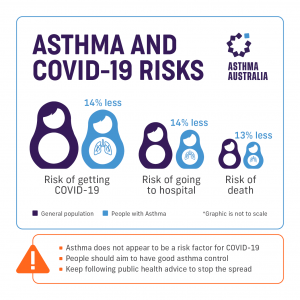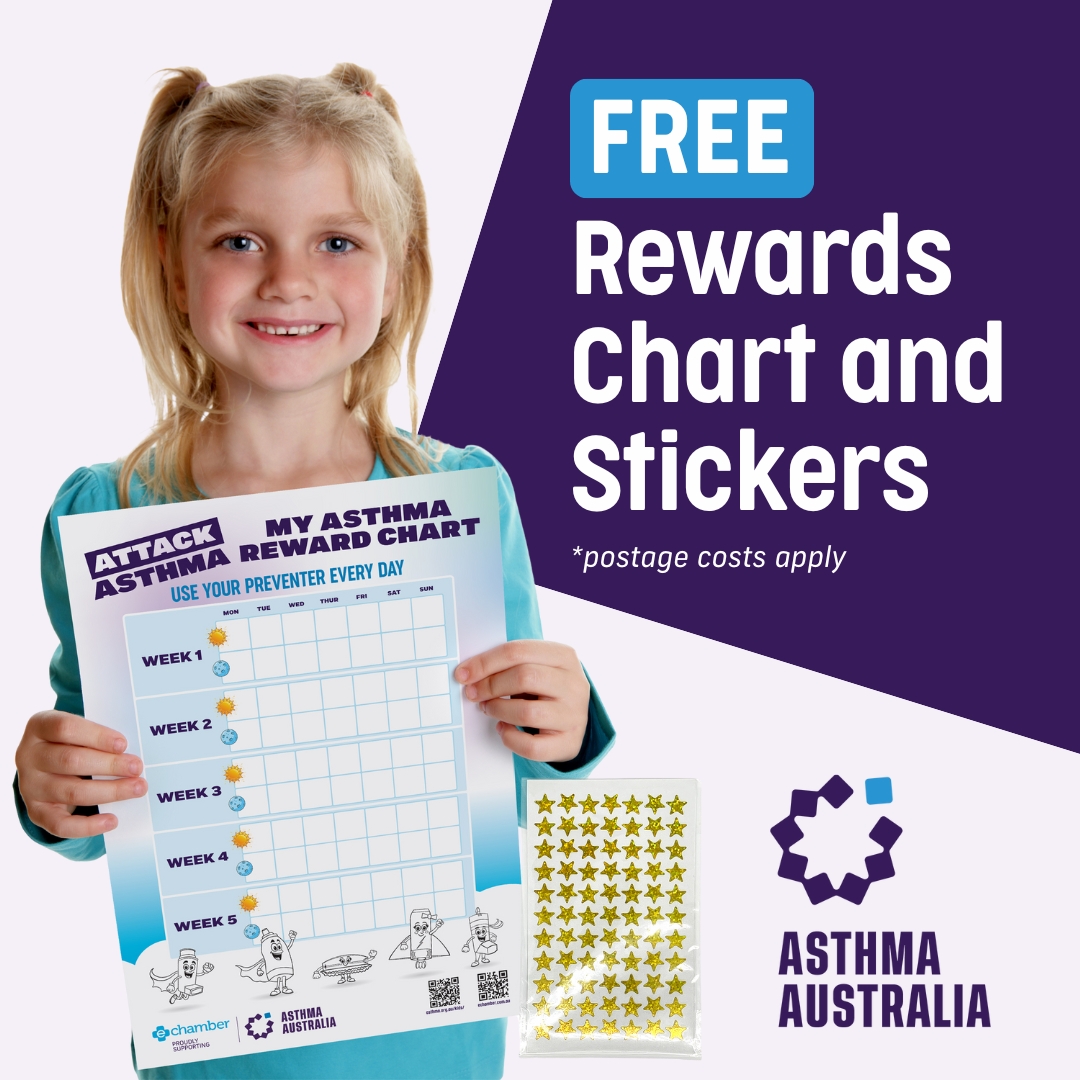ASTHMA AND COVID19 HEALTH RISK
Asthma Australia seeks to find answers to the significant questions and challenges facing Australians with asthma.
During the first outbreak of COVID-19, Asthma Australia sought to answer the question that was worrying many people with asthma and their families; am I more at risk of acquiring COVID-19? Should I self-isolate? And if I get it, will I die?
Through our National Research Fund, Asthma Australia commissioned a study to look at the Impact of COVID-19 on Asthma, completed by the George Institute for Global Health.
View the full report here or read on for an overview.
There were concerns that people with asthma are at higher risk of acquiring COVID-19, and of experiencing more severe complications, which were reflected in public health advice.
This was driven by the understanding that viral infections, like influenza and the common cold, trigger asthma symptoms and cause asthma attacks. But was this true for COVID-19?
According to an Asthma Australia COVID-19 survey, many people with asthma have been extremely anxious and have been taking extra steps to take their medication regularly, to self-isolate and physically distance, particularly following a tough summer with the challenges faced by people with asthma affected by bushfire smoke.
In the first weeks of the outbreak, Australians were consuming every available piece of information about the risk of COVID-19. A massive upswing in phone calls and social media messages to Asthma Australia led us to commission this important research for Australians. Now we have a consolidated report of all relevant international data available.
The global study by the George Institute reviewed 58 peer-reviewed publications from across the world, capturing the data of half a million people who have contracted COVID-19 who live in Asia, Europe, and the Americas.
From the half a million people, 7.46% of those infected with COVID-19 were recorded as having asthma, with most having a non-severe form.
The findings from this study suggest that people with asthma don’t appear to be at greater risk of acquiring COVID-19 than the rest of the population.
For people with asthma compared to those without asthma there was a marginally lower risk of acquiring the COVID-19 infection (14% lower), and a marginally lower risk of being hospitalised with COVID-19 (14% lower).
 However, if the illness does take on a more severe form and there’s a need for hospital care, people with asthma may be more likely to need admission to an intensive care unit (ICU) and mechanical ventilator to support their breathing. The good news is, this wasn’t considered a statistically significant difference, which is a scientific test done on data to assess the likelihood that findings are due to chance.
However, if the illness does take on a more severe form and there’s a need for hospital care, people with asthma may be more likely to need admission to an intensive care unit (ICU) and mechanical ventilator to support their breathing. The good news is, this wasn’t considered a statistically significant difference, which is a scientific test done on data to assess the likelihood that findings are due to chance.
The question that was worrying everyone, ‘am I more likely to die?’, may be somewhat less concerning for people with asthma, with the risk of death being reduced by 13% compared with people without asthma.
No more people with asthma than those without are contracting COVID-19 and if they do, it seems they are equally likely to recover (compared to people without comorbidities).
Therefore, extreme precautionary measures such as self-isolation for 12 weeks may be unnecessary, and the current public health recommendations including strict hygiene, physical distancing, and staying home if unwell are appropriate for people with asthma.
Having concrete answers is reassuring but it’s important to recognise the data is historical, based on what has been, and it is not a forecast. There is no single accepted theory explaining these results and more research may be warranted.
So, whilst having asthma does not appear to be an added risk factor of COVID-19, from the available evidence to date, we don’t fully understand the full reasons why.
Everyone must follow public health advice and take recommended protective measures for COVID-19, whether they have asthma or not. It’s control we can all exert on an individual level and a role we can play on a community level.
And people with asthma should take steps to control their asthma as best they can – asthma treatments don’t seem to constitute risk in COVID and may even be protective.
For people with asthma, health-protective measures will also protect them from other viruses that may be circulating, which are usually problematic for their asthma control. It was pleasing to note a lower incidence of the flu over winter, which is good news for people with asthma.
Asthma Australia does note the recommendations of the Australian Centre for Research Excellence (CRE) for severe asthma for the 3-7% of all people asthma who have the severe form of the disease to self-isolate and practice physical distancing when there is community transmission. This guidance is based on clinical judgement in combination with analysis of the evidence. Asthma Australia supports this recommendation.
This study has been funded by donations to the Asthma Australia Research Fund, a fund developed to continue progressing our knowledge and understanding of asthma and how people can live better with it.





 1800 278 462
1800 278 462



